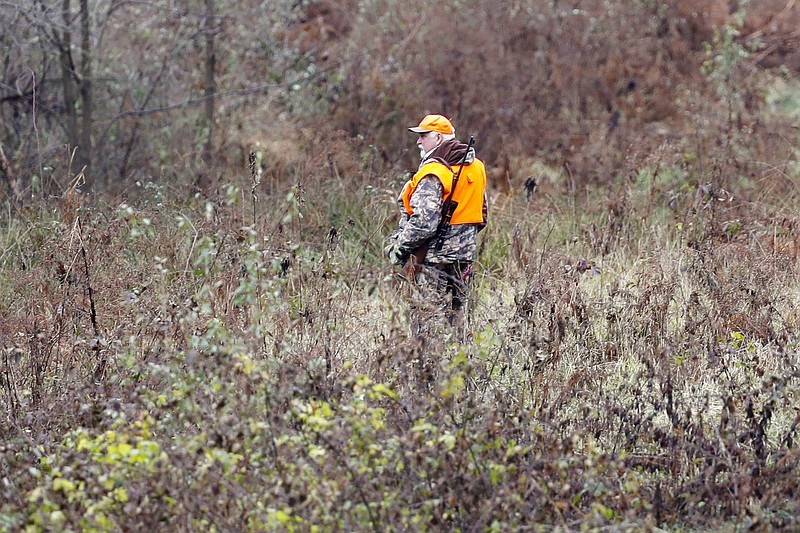I'm from Appalachia, and I hunt and fish.
I started hunting when I was a little kid, and looking back on it, I don't see how it could have gone any other way. My dad hunted and fished, he took me with him, and it just seemed to be the most natural thing in the world. My grandparents hunted and fished, of course, both grandfather and grandmother on my dad's side. There is a picture somewhere of my grandmother in a full hunting outfit: the old brown duck canvas material, pants and huntin' coat that everyone wore back then — even the iconic Jones-style hunting hat.
My ancestors (and yours, too, if you hail from this region) came here largely (in my opinion) to "get away." To get away from the more crowded (even in the 1700s) eastern part of Virginia and other colonies with the flatter, more sought-after farmland, and all of the problems and drama that come with densely populated areas. These people, the Scotch-Irish, and some English came here to get away from all of the problems and restraints of the eastern part of the colonies. They came here so they could live like they wanted, farm, explore, trap for furs, not have to hear a neighbor's axe and make moonshine whiskey.
But I like to think they came here mostly to hunt.
Hunting, you understand, in this era wasn't like hunting today. This wasn't for sport or enjoyment (although they no doubt enjoyed hunting most of the time). The early settlers in the Appalachian Mountains hunted for one main purpose: to survive. The hunters and their families needed meat, and they hunted the wild game found in the mountains — the deer, bear, wild turkeys and all of the small game, including squirrels.
More than once, I have talked to people who are not from this area, and they sometimes balk at the idea of hunting and eating squirrels. If you can get them to try properly prepared squirrels, slow cooked until tender and then maybe fried in bacon grease-seasoned flour, or in the form of squirrel gravy and biscuits, they always change their mind.
Living off the land, as in knowing how to make a meal with most of the critters in the woods and many of the plants, led to the mountain people being more self-sufficient and reclusive.
The hunters who disappeared into the mountains unknowingly started a cycle of the mountain people being known as recluses; they were isolated and remote and happy to live that way. They became very solitary and self-sufficient, and this emboldened them in their sense of freedom. They lived in the mountains as free men, they took care of their families and neighbors, and they were perfectly willing to fight anyone who tried to take this freedom away from them.
You can look up the Battle of King's Mountain and see the role the "Overmountain Men" had in this decisive battle of the Revolutionary War. This spirit of willingness to fight and defend their homes and freedom has led to mountain people, those from the Appalachians, always showing a high percentage of joining the military in times of war. Consequently, they received a high casualty rate in the fighting. These people who grew up in the mountains hunting and being familiar with firearms have always been a natural fit as soldiers.
I often think that we modern hunters inherited the spirit of the solitary hunter — just wanting to get away to roam the woods, see what is over the next rise and become part of the fabric of the woodlands — from our early settler ancestors. Pretty heavy stuff, I know, and in this modern age of ATVs, corn feeders and 1000-yard rifles, some will no doubt scoff.
But that is OK. I am comfortable in my niche as a remnant of the long hunters who roamed these mountains with the Shawnee and the Iroquois. Turkey hunters, by nature, seem more likely to be like this than others, but it can be any hunter. The lone buck hunter who chooses to follow a deer track all day rather than sit on a stand knows what we are talking about here.
I don't know if I got my message across to you folks, but I felt I needed to say this as I have been thinking about it for a while.
You see, I'm from Appalachia, and I hunt and fish.
"Guns & Cornbread" is written by Larry Case, who lives in Fayette County, W.Va. You can write to him at larryocase3@gmail.com.
